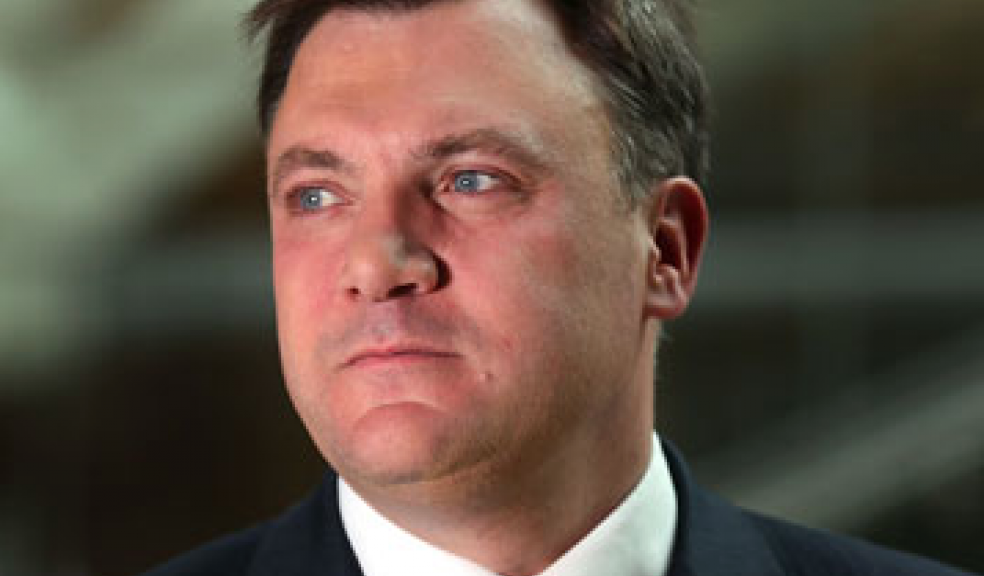
Labour woos businesses with tax incentive
Labour will today commit to maintaining the most competitive corporation tax rate in the G7 while making reforms to support long-term investment and tackle tax avoidance.
Ed Balls MP, Labour’s Shadow Chancellor, will set out Labour’s approach to business tax in a speech to the London Business School and in a policy document he is publishing with Shabana Mahmood MP, Labour’s Shadow Exchequer Secretary.
The speech will also set out the long-term reforms Labour will make to ensure Britain can earn its way out of the cost-of-living crisis and deliver rising prosperity for all, not just a few.
It comes ahead of a Policy Network conference on Inclusive Prosperity on Thursday, which will be addressed by Ed Miliband and senior business leaders.
In a speech at the London Business School Ed Balls will say: “In the face of seismic global and technological changes, stagnating median incomes and rising inequality, our challenge is to earn our way out of this deep-seated cost of living crisis. We must deliver rising prosperity for all, not just a few.
“That means creating more good jobs, boosting skills and encouraging long-term investment as we restore the broken link between the wealth of the nation and family finances.
“New times demand a new approach. Not only do we face new challenges from technological change and globalisation, we must also deliver at a time when there is less money around.
“So as Ed Miliband has said, Labour’s approach is about big reforms, not big spending. A new plan for Britain and business to succeed together. Pro-business, but not business-as-usual. Because if we are to maintain public support for an open market economy, we need to address public concerns, promote competition and long-term investment and make sure markets like energy and banking work better for consumers and businesses alike.”
On business tax he will say: “Our business tax system must be competitive, promote long-term investment and innovation, and be simpler, predictable and fair.
“The last Labour Government left Britain with the most competitive rate of corporation tax in the G7 and we are committed to maintaining that position.
“But unlike George Osborne we also recognise that companies are just as concerned about other elements of the business tax regime, such as capital allowances and business rates.
“That is why, having started and supported successive cuts in corporation tax over the last 15 years, we do not think the right priority is a further cut next year.
“We will, instead, cut and then freeze business rates for more than 1.5 million business properties. When resources are tight this is a tough choice to allow us to support more businesses and keep our overall business tax regime competitive.
“The purpose of a competitive tax system must be that companies view Britain as a great place to do business, not simply a cheap place to shift their profits.
“So Labour’s approach will be to develop a business tax system that promotes long-term investment, supports enterprise and innovation, provides a stable and predictable policy framework for business, and which is founded on fairness. With this approach Britain can compete in a race to the top, with a highly skilled, productive workforce directly benefiting from sustainable economic growth.”
Ed Balls will also say that Labour is looking at further reforms to support long-termism in business.
He will say: “Our tax system must tackle the short-termism that has become an entrenched feature of the UK business environment and instead promote the long-term investment we need to create more good jobs for the future.
“So we are examining the case for introducing an Allowance for Corporate Equity, along the lines suggested in the Mirrlees Review, to redress the systemic bias in favour of debt finance.
“Such a scheme would offer a strong incentive for long-term investment, building more robust businesses that would be better able to plan for the future. We will consult with business and other stakeholders on the case for introducing this reform, and how it might be implemented.
“We will also examine the possibility of structural changes to the tax system to incentivise long-term investment. In his report on short-termism in British business, Sir George Cox recommended a series of reforms including a lower rate of capital gains tax for long-term investors.
“This could complement an Allowance for Corporate Equity, by making long-term investment attractive to the investor as well as to the recipient of funding. Labour is consulting with industry on the potential impact of these and other recommendations of the Cox Review and how they could be delivered in a revenue-neutral way.”
Labour’s business tax document sets out our approach to tackling tax avoidance, including: closing loopholes such as the “Quoted Eurobond Exemption”; increasing transparency in the tax system; tackling dormant companies; encouraging stronger independent scrutiny of the tax system; ensuring developing countries are fully involved in international efforts to tackle tax avoidance; and tackling disguised employment in the construction industry.



















